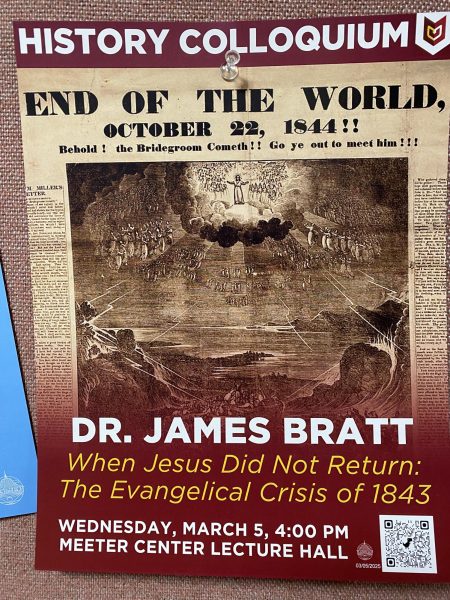Is Trump an evangelical candidate?
Donald Trump’s turbulent presidential campaign has not only created a rift in the GOP establishment, but it has also exposed a divide in the evangelical community. Evangelical Protestants within the Republican Party are aggressively split on their opinions of the highest-polling nominee, calling into question this campaign the long-standing tradition in U.S. politics that voters prefer candidates with strong faith beliefs.
Although Trump is a professing Presbyterian, recent surveys from the Pew Research Center gathered that just 30 percent of U.S. adults view the Republican frontrunner as being “somewhat” religious. No other candidate, Republican or Democrat, scores lower. According to another poll conducted by Public Religion Research Institute, a surprising 53 percent of white evangelical Protestants have a favorable opinion of Trump.
It is unconventional (since at least the Reagan era) that a presidential candidate with a highly questioned faith would win the majority of the evangelical vote. So why does Trump’s support from evangelicals continue to grow? 64 percent of evangelicals, for example, claim that a pro-life stance will have “a lot” of impact on who they vote for in 2016. But Trump was, in his own words, “very pro-choice” until recently, with many still finding his current position ambiguous.
Along with a growing support from the general public of evangelicals, just this past week Jerry Falwell Jr., president of Liberty University, the largest evangelical university in the world, publicly endorsed Donald Trump. Falwell said, “I am proud to offer my endorsement of Donald J. Trump for President of the United States. He is a successful executive and entrepreneur, a wonderful father and a man who I believe can lead our country to greatness again.” Falwell’s endorsement came just a week after he told his student body in the auditorium that “the school did not endorse candidates,” as he pointed to speakers on both sides of the aisle. It may seem strange to some that an influential leader of the Religious Right would endorse a candidate that has admitted to having multiple affairs, continuously uses vulgar language on the campaign trail and has gained a majority of his media attention because of racist and sexist remarks made in public.
But many evangelical leaders showed great concern at the endorsement, especially Russell Moore, a prominent evangelical theologian, ethicist and preacher. Moore did not hold back in his criticism to Falwell, sending tweets at him that read, “This would be hilarious if it weren’t so counter to the mission of the gospel of Jesus Christ. #TrumpatLiberty,” and “Evangelicals can love a golden calf, as long as Aaron promises to make Mexico pay for it,” among several other similar remarks.
John Stemberger, president of the Florida Family Policy Council, also had strong words on the matter, stating in an interview that “The late Dr. Jerry Falwell Sr. would be rolling over in his grave if he knew the son who bore his name had endorsed the most immoral and ungodly man to ever run for president of the United States. … It is one thing to allow the free exchange of ideas, even bad ideas, among college students on a Christian campus. It is quite another to give a glowing endorsement-like introduction calling Donald Trump.”
Although polls indicate that Trump has a strong support from evangelicals, sociologist Michael Lindsay, among others, believes that the support comes from the “evangelical populists,” represented by the “faithful masses you might see profiled on cable television.” However, he believes that Trump lacks the backing of the “evangelical cosmopolitans,” represented by the cultural elites, especially academic and ministerial leaders.
According to Lindsay, “Cosmopolitan evangelicals are more in support of Marco Rubio — unlike Falwell’s endorsement of Trump, which pleased the populists. The only candidate that embodies many of the characteristics of cosmopolitan evangelicals but is able to appeal to populists may be Ted Cruz.”
Lindsay gathered from his research that opinions of high-ranking evangelicals should not be assumed to fully reflect those that they claim to represent. For example, 63 percent of evangelicals said they believed America “should make a serious effort to deport all illegal immigrants back to their home countries.” This is in opposition to the vast majority of evangelical leaders, who offered a clear call for immigration reform. There was perhaps a time when ordinary evangelicals followed closely behind their respective leaders, but if so, that no longer seems to be the case. “The media makes a mistake when they take the opinion of an evangelical leader or leaders and assume this implies broad evangelical support. Evangelical political support is splintering and has spread across the political spectrum.”






